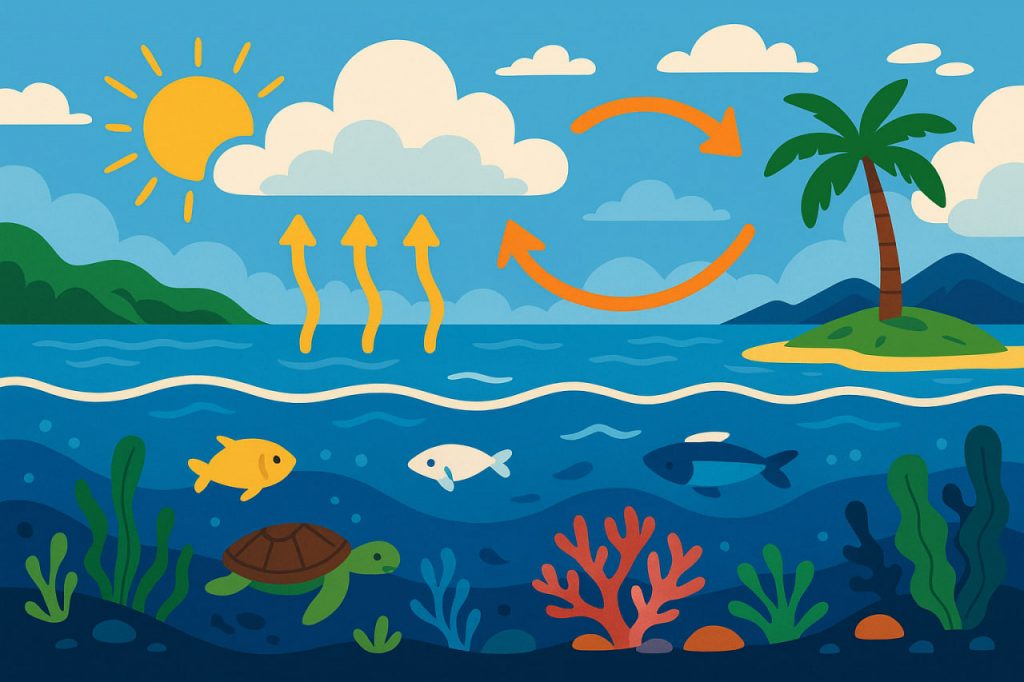Oceans cover over 70% of Earth’s surface and act as a massive climate regulator. They absorb, store, and redistribute heat, moisture, and carbon dioxide, helping maintain the planet’s temperature balance. Without oceans, Earth’s climate would become far more extreme, with scorching heat in some regions and freezing cold in others. Understanding the role of oceans in the climate system is key to predicting and mitigating climate change.
Heat Absorption and Distribution
Oceans act like a giant heat sink, absorbing solar energy during warm periods and slowly releasing it over time. Ocean currents, such as the Gulf Stream, redistribute this heat from the equator toward the poles, moderating temperatures globally. Without these currents, coastal climates would be harsher and less stable.
Carbon Dioxide Regulation
Marine ecosystems, especially phytoplankton, absorb significant amounts of CO₂ during photosynthesis. This natural process reduces greenhouse gases in the atmosphere, slowing down global warming. However, excessive carbon emissions can overwhelm this system, leading to ocean acidification, which harms marine life.
Moisture and Weather Patterns
Oceans provide the majority of atmospheric moisture through evaporation. This water vapor fuels rainfall, storms, and monsoons. Warm ocean waters can intensify hurricanes and typhoons, showing the close link between ocean temperature and extreme weather.
Biodiversity and Climate Stability
Healthy oceans are home to coral reefs, kelp forests, and countless marine species that support balanced ecosystems. Biodiversity in the oceans contributes to stable carbon cycles and resilient food webs, making the climate system more robust against disruptions.
Climate Change and Ocean Health
As climate change progresses, oceans are warming, ice sheets are melting, and sea levels are rising. These changes threaten coastal cities, marine species, and global weather patterns. Protecting oceans through reduced pollution, sustainable fishing, and marine reserves is vital for climate stability.
Glossary
- Phytoplankton – microscopic marine plants that produce oxygen and absorb carbon dioxide.
- Ocean acidification – the decrease in ocean pH due to absorption of CO₂ from the atmosphere.
- Ocean currents – continuous movements of seawater that distribute heat across the planet.
- Heat sink – a system that absorbs and stores heat energy.
- Sea level rise – an increase in ocean water levels due to melting ice and thermal expansion.


